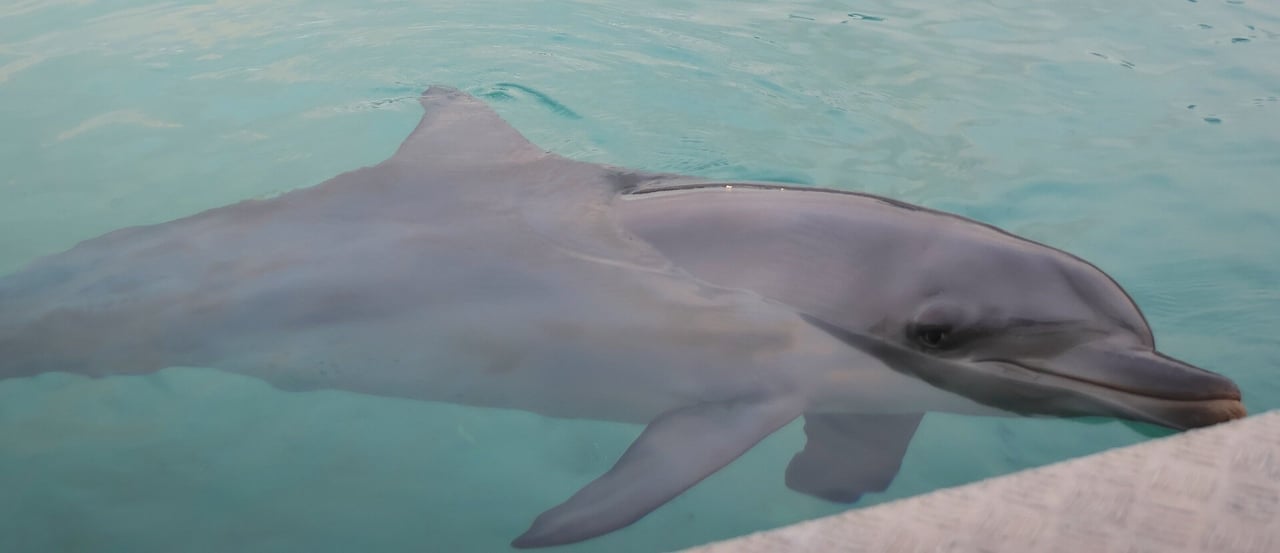Behind the smile
Read our 'Behind the Smile' report and learn more about the multi-billion dollar dolphin entertainment industry.

Image credit: Carol Slater Photography / World Animal Protection
Up to 50 years in captivity is no life for a wild animal. In their natural environment, dolphins swim freely in 100 square kilometres of ocean, sometimes more, but the average dolphin in captivity has a space a fraction of that!
They often look like they are smiling, but this is just the shape of their face. Don’t be fooled by a smile.
Join our global community to defend dolphins by taking our pledge to only see dolphins in the wild - where they belong.
The tide is turning against the keeping of dolphins in captivity for entertainment.
Our research shows 66% of Australians prefer to see dolphins in the wild.
Major travel brands including TripAdvisor and Booking.com have already committed to stop selling tickets to dolphin shows and encounters.
As well as changes from the travel industry, Canada recently passed a ban on keeping dolphins, whales and porpoises for entertainment, and France banned captive dolphin breeding.
This is part of a global movement towards better treatment of these wild animals, which includes the nations of Brazil, Bolivia, Chile, Costa Rica, India, Luxembourg, Norway, Switzerland, and the UK.
Through desktop and in-country research carried out in 2018, World Animal Protection examined the scale and character of the dolphin entertainment industry.
In our Behind the Smile report we identified 355 publicly accessible facilities across 58 countries worldwide that keep dolphins or other cetaceans in captivity. Of these facilities, 336 keep dolphins.
Our research shows that of the 3,603 cetaceans identified at those facilities, eight out of 10 (3,029) are dolphins, and 87% of those are bottlenose dolphins. Over 60% of all captive dolphins worldwide are kept by just five countries: China (23%), Japan (16%), the USA (13%), Mexico (8%) and Russia (5%).
However, if looking at geographic regions, the Mexico, Caribbean, Bahamas and Bermuda region accounts for almost one in five captive dolphins globally and is therefore another hotspot for the industry.

Read our 'Behind the Smile' report and learn more about the multi-billion dollar dolphin entertainment industry.
Call on the Queensland government to ban captive dolphin breeding and stop captive dolphins shows and direct interactions.
Did you know that some dolphins can swim up to speeds of 50kph and regularly dive to depths of up to 55 metres?